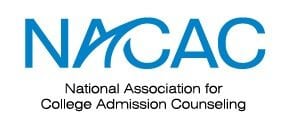 By fall of senior year for high school students, the bulk of the work has been completed. Stressful standardized testing continues for some but the picture presented to the college has all but been set in stone.
By fall of senior year for high school students, the bulk of the work has been completed. Stressful standardized testing continues for some but the picture presented to the college has all but been set in stone.
However, the last step of the process of gaining acceptance to college is arguably as critical or more critical than the rest: Physically applying to the college. This step demands focus, attention to detail and a drive to put on display all of one’s high school accomplishments.
We chose to focus not on the essay, though most schools require an essay(s) and it is very important, but to discuss five tips to master the Admission Application process.
1. Understand Which Application(s) to Complete
Does the school accept the common application? Do they want their own application? Is it some combination?
It is imperative to provide the college with the right materials and while the common application is an excellent time saver, it should not be considered a replacement for all admission applications. It is also crucial to know the mandatory and optional requirements for the application (i.e. essays(s), interview, letters of recommendation, etc).
2. Prioritize
Focus on what you have done most recently first and don’t feel as though every activity needs to be included.
Colleges want to see quality from students, briefly explaining accomplishments with two activities is far more noteworthy than a list of numerous clubs just to note participation
3. Brevity is the Soul of Wit
In the context of the college application process, this Shakespearean adage means that the best applications will utilize as few words as possible to drive home the desired point (unlike this long sentence).
Fewer words = more effective application.
This is not to say that applicants should be counting words or leaving out key details but focusing on what is truly important in a concise manner is ideal. This process is not meant to be rushed and it is better to take a few extra days to get the application right as opposed to trying to submit quickly.
Remember to heed the words of American Railroad Pioneer Edward H. Harriman: “Much good work is lost for the lack of a little more.”
4. Review the Application Thoroughly
After over three years of hard work and long nights, it is foolish to let a mistake hinder personal goals at the final stage of the process. It is not meant to scare students but the reality is that some schools will completely disregard an application that has a typo.
Check punctuation, spelling, grammar during the application and after the application is complete. Ideally, have a trusted family member and/or a teacher review your work prior to submitting.
The best way to ensure that the application is error-free is to write out any extended question in a word document prior to pasting it on the actual application. This way the content is as strong as possible is also as strong as possible and of course error free.
5. Provide Additional Materials When Possible
Some schools especially with an online application will not take into consideration additional materials. However, checking with each school on the college list in early fall or late summer to determine if additional materials will be considered is very wise.
By senior year, students should have at least two letters of recommendation which can sometimes be added in to an app (or sent in the mail after submitting online) and is very helpful. Any special circumstances (family issues or illness, unexpected events, etc) should be noted and explained in a letter as well if allowed.
An additional essay is not a proper use of time and is almost universally ignored but the required essay(s) are an important part of the application process.




